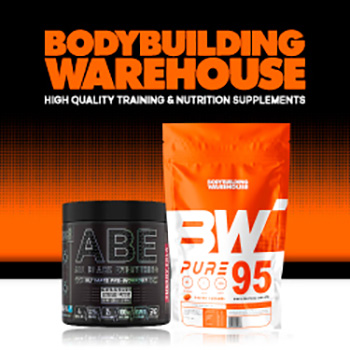
Important Points
- Adjusting your diet to your sport's specific needs can significantly boost your performance by focusing on the right balance and timing of macronutrients.
- Protein should be the main focus of your recovery nutrition, while quality carbohydrates should be prioritized for pre exercise nutrition for maximum energy.
- Each athletic discipline needs a different nutrition strategy endurance athletes need more carbohydrates, while strength athletes need more protein.
- Keeping track of your food intake and training performance can help you figure out the nutrition patterns that work best for your unique body.
- According to leading sports nutrition experts, personalized approaches to athletic performance nutrition produce better results than generic plans.
What separates good athletic performance from great athletic performance often comes down to what you're eating. Elite athletes don't just train differently, they also eat differently. Learning how to adjust your diet can be the competitive edge that takes your performance to the next level.
What Elite Athletes Know About the Connection Between Performance and Nutrition
Elite athletes understand that nutrition isn't something you only worry about when issues come up. Instead, it's a fundamental part of their training regimen. The body is a high performance machine that responds exactly to the quality of fuel it gets. When you nourish your body correctly, it can train harder, recover quicker, and adapt more efficiently to physical demands.
Smart eating isn't just about avoiding junk food it's about eating the right nutrients at the right times to support your training, competition, and recovery. Experts at Bodybuilding Warehouse emphasize that every meal plays a role in an athlete's routine, whether it's building muscle, supporting the immune system, or storing glycogen for an upcoming competition
Top athletes know that nutrition is just as important as physical training. They know that good nutrition can change their cells and make them perform better than training alone.
The Big Three: Carbs, Protein, and Fat
When it comes to sports nutrition, understanding the role of macronutrients such as carbohydrates, proteins, and fats is crucial. Each of these nutrients plays a specific role in performance and recovery. The optimal ratio of these nutrients can vary depending on your sport, your training phase, and your individual physiology.
Carbohydrates: Your Body's Preferred Fuel Source
When it comes to high intensity workouts, carbohydrates are your body's best friend. When you consume carbs, your body turns them into glycogen. This is primarily stored in your muscles and liver. During a tough workout, your muscles break down this glycogen to provide the energy you need for those high-powered movements and to keep you going for the long haul.
Lucy Mower, MS, RDN, CD, says, “Sports nutrition for endurance athletes or high intensity athletes needs to contain adequate carbohydrates to fuel exercise. If carbohydrates are too low, it will be challenging to maintain intensity of exercise.” This is because inadequate carbohydrate intake directly impacts the performance capability of endurance and high intensity athletes. Most athletes require 3-10g of carbohydrates per kilogram of body weight daily. The higher end is necessary during intense training phases or competition preparation.
It's not just about how much you eat, but what you eat. Whole grains, fruits, and vegetables are complex carbs that provide long lasting energy and extra micronutrients that help with overall health and recovery. Simple carbs also have a role, especially during and right after a workout. It's important to quickly replenish glycogen.
How Much Protein Do You Need for Muscle Repair and Growth?
Protein is the main ingredient your body uses to repair and grow muscles, which is crucial for athletes of all kinds. When you work out, you create tiny tears in your muscle tissue. When you eat the right foods, those tears heal. This process makes your muscles stronger and better.
Strength athletes need more protein to maximize muscle protein synthesis during recovery. However, protein consumption isn't just important for powerlifters and bodybuilders. Endurance athletes need enough protein to repair muscle damage from repetitive motion. It also prevents muscle catabolism during long training sessions.
“An athlete doesn't need to eat a steak covered in protein powder. First meet protein intake requirements with food, and supplement if needed to facilitate muscle mass growth with exercise training.” Sports Nutrition Expert
Most athletes benefit from consuming 1.2-2.0g of protein per kilogram of body weight daily. The higher range is appropriate for those in intense strength training phases or caloric deficits. Timing matters too. Distributing protein intake throughout the day in 20-40g servings optimizes muscle protein synthesis better than concentrating protein in one or two large meals.
The Importance of Fats for Endurance and Hormonal Balance
Contrary to the fat free diet fads of the past, healthy fats are actually vital for athletic performance. During low intensity, long duration activities, fat is the main source of energy. It becomes even more important as glycogen stores are used up. For endurance athletes, teaching the body to use fat as fuel efficiently can greatly improve performance.
In addition to providing energy, dietary fats are crucial for hormone production, cell membrane function, and the absorption of fat soluble vitamins. If an athlete doesn't consume enough fat, it can lead to decreased testosterone levels in males. In females, it can cause disrupted menstrual cycles. Both of these issues can negatively affect an athlete's performance and recovery.
Try to eat unsaturated fats from foods such as avocados, nuts, seeds, olive oil, and fatty fish. These foods contain anti inflammatory omega-3 fatty acids that can help decrease inflammation caused by exercise. They also help keep your joints healthy. Most athletes should try to make sure that 20-35% of the calories they eat in a day come from fat. However, this can be adjusted based on how your body responds and what your sport requires.
It's All About Timing: Smart Eating Habits
What you eat is important, but so is when you eat. Smart eating habits can help you have more energy, recover faster, and get more out of your workouts. The best athletes know this. So, they plan their meals and snacks around their workouts to get the most benefits.






